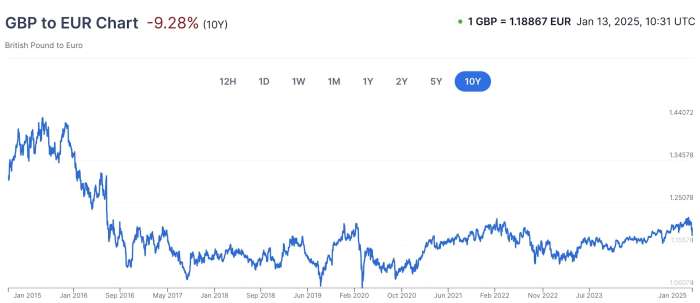
The Pros and Cons of a SIPP for Expats
A Self-Invested Personal Pension (SIPP) can be a great retirement savings tool for UK expats, but it’s not the right choice for everyone.
If you’re living abroad and wondering whether a SIPP is suitable for your financial situation, this guide will walk you through the key advantages and potential pitfalls.
What is a SIPP?
A SIPP is a UK-based pension that gives you control over how your retirement savings are invested.
Unlike traditional workplace pensions, a SIPP allows you to choose from a wide range of investments, including stocks, bonds, mutual funds, and commercial property.
For British expats, a SIPP can be an effective way to maintain a UK pension while living overseas.
However, there are important tax, investment, and access considerations to keep in mind.
Pros of a SIPP for Non-UK Residents
1. Investment Flexibility
A SIPP allows you to take control of your investments.
You can choose from a wide range of assets, including international funds, ETFs, and individual stocks.
This flexibility can be particularly useful for expats who want to invest in global markets rather than being tied to UK-based funds.
2. Tax Efficiency
- UK Tax Relief: If you’ve contributed to a UK pension in the past, you may still be eligible for UK tax relief on your contributions (up to £3,600 gross annually for the first 5 years) even if you live abroad.
- No Capital Gains Tax (CGT): Investments inside a SIPP grow free from UK CGT, which can be a significant advantage compared to holding investments outside a pension wrapper.
3. Retirement Flexibility
- You can start withdrawing from your SIPP at age 55 (rising to 57 in 2028).
- You can take 25% of your pension tax-free if you remain a UK tax resident at the time of withdrawal.
- You can withdraw the rest as a lump sum or through flexible drawdown options, depending on your retirement income strategy.
4. Estate Planning Benefits
- SIPPs are not currently subject to UK inheritance tax (IHT), making them an efficient way to pass wealth on to your beneficiaries.
- However, it was announced in the October 2024 budget that as of April 2027, they will be brought into the UK IHT net.
🔗 Are UK Pensions Now Liable for Inheritance Tax? The New Pension IHT Rules Unpacked
5. Portability for Expats
- You can continue to manage and grow your SIPP while living abroad.
- A SIPP remains in the UK, so you don’t need to transfer your pension to an offshore scheme such as a QROPS.
6. Pension Consolidation
- If you have multiple pension pots from different employers, a SIPP allows you to consolidate them into a single account.
- This can make managing your retirement savings easier, reducing paperwork and potentially lowering overall costs.
- A consolidated pension can also provide greater investment flexibility and simplify retirement planning.
Cons of a SIPP for Expats
1. Tax Implications in Your Country of Residence
While SIPPs offer tax benefits in the UK, expats must consider how withdrawals are taxed in their country of residence. Some key points:
- Many countries will tax SIPP withdrawals as regular income.
- Some jurisdictions, such as France and Spain, do not recognise UK pension tax-free lump sums.
- Double Taxation Agreements (DTAs) can sometimes reduce tax liability, but these vary by country.
2. Currency Risk
- SIPPs are held in GBP, meaning you’re exposed to exchange rate fluctuations when withdrawing funds in a different currency.
- If the pound weakens, your retirement income in local currency terms could drop significantly.

3. Limited Contributions for Non-UK Residents
- If you no longer live in the UK, your ability to contribute to a SIPP and get tax relief is restricted to £3,600 gross per year for the first 5 tax years that you live overseas.
- This makes SIPPs less effective for building additional retirement savings once you’ve moved abroad.
4. Access and Regulatory Risks
- The UK government has made several changes to pension rules in recent years, including increasing the minimum retirement age.
- Future changes could impact expats’ ability to access their pensions flexibly.
- Some UK pension providers do not allow non-UK residents to open or maintain a SIPP, so you must choose a provider that supports expats.
5. Costs and Complexity
- SIPPs often have higher fees than workplace pensions.
- Managing a SIPP requires investment knowledge, or you may need to hire an adviser, adding to your costs.
Who Should Consider a SIPP?
A SIPP can be a good option if:
- You already have UK pensions and want more control over how they are invested.
- You are comfortable managing your investments or have an adviser.
- You live in a country with a favourable tax treaty with the UK.
Who Might Want to Avoid a SIPP?
A SIPP may not be the best choice if:
- You have your funds in an employer pension where the fees are heavily subsidised.
- Your current pension offers you benefits such as guaranteed annuity rates or an enhanced tax-free cash element.
- You need to contribute more than £3,600 per year.
- You live in a country with high taxes on UK pension withdrawals.

Case Study: Peter’s SIPP Consolidation for Retirement in Greece
Peter’s Situation:
Peter is a British expat retiring to Greece, where he wants to benefit from the Greek 7% rule, which allows overseas pension income to be taxed at a flat rate of 7% for the first 15 years of residence.
He currently has four UK pensions with a combined value of £650,000.
Managing multiple pensions has become increasingly difficult, and he wants a more streamlined approach to accessing his retirement funds while ensuring tax efficiency.
The Solution:
To simplify his retirement planning and gain more control over his investments, Peter consolidates his four pensions into a single international SIPP.
This allows him to manage his retirement savings more efficiently, benefiting from flexible drawdown options and reducing administrative hassle.
He works with a financial adviser to ensure that the consolidation process is done in a tax-efficient manner.
The Outcome:
- Reduced Complexity: By consolidating his pensions, Peter significantly reduces paperwork and administrative burdens, allowing for easier tracking and better financial planning.
- Lower Fees: Instead of paying multiple management fees across different pension providers, he now benefits from lower costs associated with a single SIPP provider.
- Flexible Withdrawals: Peter can withdraw his pension at his own pace, adjusting the amounts based on his lifestyle needs in Greece.
- Tax Efficiency: By leveraging Greece’s 7% rule on foreign pension income, Peter minimizes his tax liability, ensuring he keeps more of his pension income.
- Investment Control: With a SIPP, Peter has access to a wider range of global investment options, allowing him to tailor his portfolio to match his risk tolerance and retirement goals.
This case study illustrates how a SIPP can be a highly effective pension solution for British expats looking to simplify their retirement finances while maximising tax efficiency abroad.
Final Thoughts
For many British expats, a SIPP is an attractive way to keep their pension assets within a flexible, tax-efficient UK structure.
However, it’s essential to consider tax implications, currency risk, and access restrictions before making a decision.
If you’re an expat unsure about whether a SIPP is right for you, seeking professional financial advice is crucial.
The right pension strategy can help you maximise your retirement income while minimising unnecessary tax burdens.

Understanding SIPPs for Expats
FAQs
A SIPP is a UK-based pension scheme that offers individuals control over their retirement investments. Unlike traditional pensions, SIPPs allow investment in a diverse range of assets, such as stocks, bonds, mutual funds, and commercial property. This flexibility enables individuals to tailor their retirement savings strategy to their specific financial goals.
Yes, expatriates can open and contribute to a SIPP while residing overseas. However, non-UK residents are typically limited to contributing up to £3,600 gross annually for the first five tax years after leaving the UK. It’s important to consult with a financial adviser to understand the specific contribution limits and eligibility criteria based on individual circumstances.
SIPPs offer several tax advantages, including:
UK Tax Relief: Eligible contributions may receive UK tax relief, even for non-residents, up to the specified limits.
Tax-Free Growth: Investments within a SIPP grow free from UK Capital Gains Tax (CGT), enhancing the potential for compound growth over time.
Inheritance Tax Benefits: Historically, SIPPs have not been subject to UK inheritance tax (IHT), allowing for efficient wealth transfer to beneficiaries. However, from April 2027, SIPPs will be included in the UK IHT net, following an announcement in the October 2024 budget.
While SIPPs provide tax advantages in the UK, withdrawals may be taxed in the expatriate’s country of residence. Many countries treat SIPP withdrawals as regular income, and some do not recognise the UK’s tax-free lump sum. It’s essential to review the tax regulations of your country of residence and consult with a tax professional to understand the implications.
SIPPs offer a broad spectrum of investment choices, including:
Individual stocks and shares
Unit trusts and open-ended investment companies (OEICs)
Exchange-traded funds (ETFs)
Bonds and gilts
Commercial property
This extensive selection allows individuals to diversify their portfolios according to their risk tolerance and investment objectives.
Since SIPPs are denominated in GBP, expatriates face currency risk when withdrawing funds in a different currency. Exchange rate fluctuations can impact the value of withdrawals, potentially reducing retirement income. To mitigate this risk, some providers offer international SIPPs that allow investments in multiple currencies, aligning with the individual’s country of residence.
Yes, consolidating various pension pots into a single SIPP can simplify management, reduce administrative costs, and provide a cohesive investment strategy. However, it’s crucial to evaluate the benefits and potential drawbacks, such as the loss of any guaranteed benefits from existing schemes, before proceeding with consolidation.
Individuals can begin withdrawing from their SIPP at age 55, with this threshold set to rise to 57 in 2028. Up to 25% of the pension can be taken as a tax-free lump sum if the individual is a UK tax resident at the time of withdrawal. The remaining funds can be accessed through lump sums or flexible drawdown options, depending on the chosen retirement income strategy.
DTAs between the UK and other countries can influence the taxation of SIPP withdrawals, potentially reducing tax liability by preventing double taxation. The specifics vary depending on the agreement between the UK and the expatriate’s country of residence. Consulting with a tax adviser familiar with international tax treaties is advisable to navigate these complexities.
Expatriates should assess several factors, including:
Tax Implications: Understanding both UK tax benefits and the tax treatment in the country of residence.
Currency Risk: Evaluating the impact of exchange rate fluctuations on retirement income.
Contribution Limits: Recognising restrictions on contributions for non-UK residents.
Regulatory Changes: Staying informed about potential changes to pension regulations that may affect access and benefits.
Seeking professional financial advice tailored to individual circumstances is essential to determine if a SIPP aligns with one’s retirement planning goals.
Need Help with Your Expat Pension Planning?
If you’re a British expat looking for expert financial advice on SIPPs and other pension options, get in touch.
I specialise in helping expats navigate cross-border retirement planning, ensuring you make the best financial decisions for your future.
Further Reading
Can I save into a UK pension plan if I live abroad?
Should I Consolidate My Pensions?
How do I apply for an NT Code for pension income?
Unlocking Your Retirement: A Guide to Flexi-access Drawdown Rules
QROPS Advice: How New HMRC Rules Could Impact Your Overseas Pension Transfer

Talk to an Expert
A SIPP (Self-Invested Personal Pension) can be a powerful retirement vehicle for expats — but only when used correctly. Flexibility, global access and investment control are appealing, yet tax traps, currency risk and UK regulatory rules can create major problems if you’re living overseas.
I’m Ross Naylor, a UK-qualified Chartered Financial Planner and Pension Transfer Specialist with nearly 30 years’ experience guiding British expats worldwide on whether a SIPP is the right choice based on their location, tax position, existing pensions and retirement goals.
I firmly believe your location in the world should never be a barrier to expert, impartial and transparent financial advice you can trust.
Whether you're trying to weigh up the benefits of investment flexibility, the risks of currency mismatch, the impact of UK tax rules, or whether a SIPP outperforms your current pension options, I’ll help you understand the pros and cons clearly — and avoid costly mistakes that many expats accidentally make.
Book a confidential consultation
